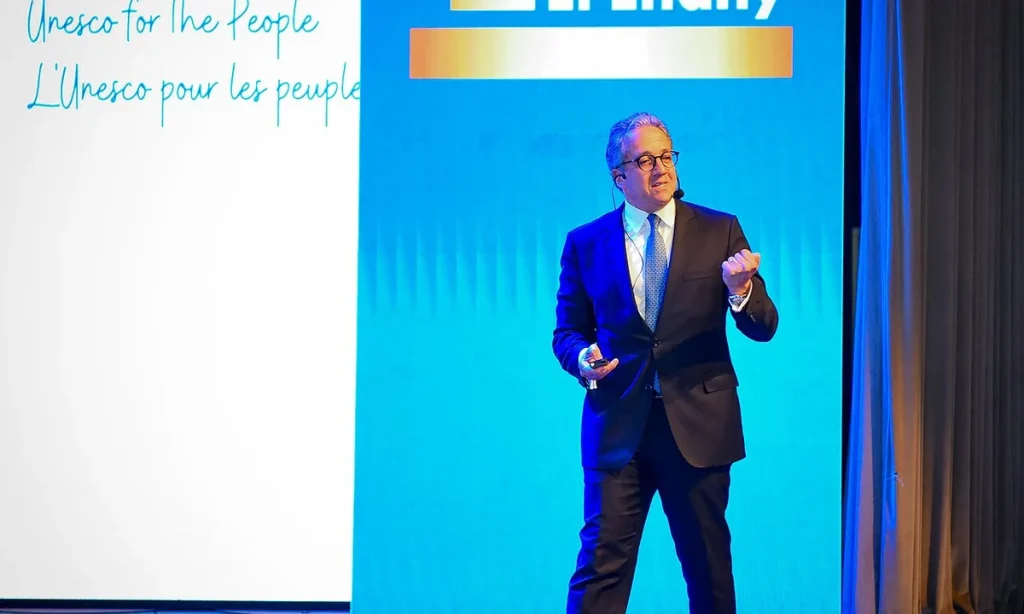Unesco is set to appoint its first director-general from the Arab world after Khaled el-Enany, an Egyptian academic and former government minister, was nominated by the executive board of the United Nations cultural agency on 6 October.
This nomination will be put to a vote by all Unesco member states on 6 November at Unesco’s general conference in Samarkand, Uzbekistan. If elected, El-Enany will replace Audrey Azoulay who has been in post since 2017 and served two terms in office.
The Congolese economist Édouard Firmin Matoko is the other candidate up for the post. However, Unesco’s executive board voted 55 to 2 in favour of El-Enany.
El-Enany is reportedly keen to bring the United States back into the Unesco fold after the US Department of State announced plans in July to withdraw from the organisation, describing its continued involvement as “not in the national interest of the United States”. The country’s withdrawal, which would result in a major budget shortfall for Unesco, is anticipated to take effect on 31 December 2026.
In a candidacy statement posted on his website, El-Enany says: “I would adopt an open-door policy and organise regular meetings with permanent delegations. I pledge to serve as a cultural bridge, fostering consensus through depoliticised technical deliberations, and strengthening dialogue with governing bodies.”
According to the Associated Press, El-Enany is expected to focus on Unesco’s cultural programmes and has pledged to continue Unesco’s work to fight antisemitism and religious intolerance.
El-Enany is professor of Egyptology at Helwan University, where he has been teaching for over 30 years, and has a doctorate in Egyptology from Paul-Valéry Montpellier 3 University in France. He was the director of the National Museum of Egyptian Civilisation (2014-2016) and the Egyptian Museum in Cairo (2015-2016). From 2016 to 2022, he was Egypt’s minister of antiquities and then minister of tourism and antiquities.
During Azoulay’s tenure, several key religious monuments in Mosul, Iraq, that were damaged under Islamic State (Isis) rule underwent restoration. Unesco also continues to list and assess the damage done to Ukrainian cultural sites since the Russian invasion in February 2022.
